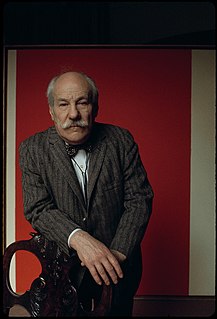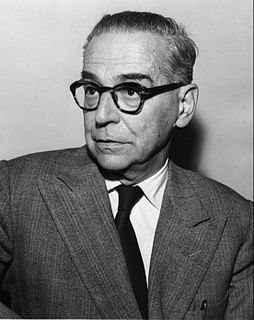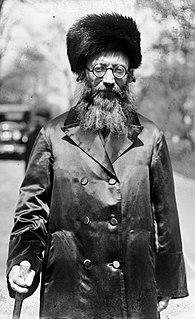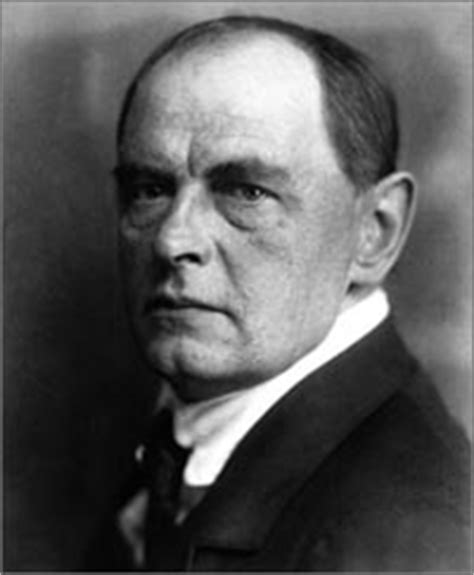A Quote by Herman Melville
It is often to be observed, that as in digging for precious metals in the mines, much earthly rubbish has first to be troublesomely handled and thrown out ; so, in digging in one s soul for the fine gold of genius, much dulness and common-place is first brought to light. Happy would it be, if the man possessed in himself some receptacle for his own rubbish of this sort: but he is like the occupant of a dwelling, whose refuse cannot be clapped into his own cellar, but must be deposited in the street before his own door, for the public functionaries to take care of.
Quote Topics
Before
Brought
Cannot
Care
Cellar
Common
Digging
Door
Dwelling
Earthly
Fine
First
Genius
Gold
Handled
Happy
He Man
Himself
His
Light
Like
Man
Metals
Mines
Much
Must
Observed
Often
Out
Own
Place
Possessed
Precious
Precious Metal
Public
Refuse
Rubbish
Some
Sort
Soul
Street
Take
Take Care
Thrown
Whose
Would
Related Quotes
First of all, although men have a common destiny, each individual also has to work out his own personal salvation for himself in fear and trembling. We can help one another to find the meaning of life no doubt. But in the last analysis, the individual person is responsible for living his own life and for "finding himself." If he persists in shifting his responsibility to somebody else, he fails to find out the meaning of his own existence. You cannot tell me who I am and I cannot tell you who you are. If you do not know your own identity, who is going to identify you?
The first step to be taken by one who wishes to follow Christ is, according to Our Lord’s own words, that of renouncing himself - that is, his own senses, his own passions, his own will, his own judgement, and all the movements of nature, making to God a sacrifice of all these things, and of all their acts, which are surely sacrifices very acceptable to the Lord. And we must never grow weary of this; for if anyone having, so to speak, one foot already in Heaven, should abandon this exercise, when the time should come for him to put the other there, he would run much risk of being lost.
It is rare to find a man who believes in his own thoughts or speaks that which he is created to say. As nothing astonishes men so much as common sense and plain dealing, so nothing is more rare in any man than an act of his own...feel yourself, and be not daunted by things...The light by which we see this world comes out from the soul of the observer.
There comes a time when a man finds himself in front of a dark uncrossable abyss, which he himself has spent years digging. He cannot go forward, and has no way back. Words have failed, tears won't help, and who would he call out to? He can't even remember his own name. Then the man sees that on this god's green earth there is but one true suffering: the torment of guilty conscience.
One whose soul does not wander in the expanses, one who does not seek the light of truth and goodness with all his heart, does not suffer spiritual ruins - but he will also not have his own self-based constructions. Instead, he takes shelter in the shadow of the natural constructions, like rabbits under boulders. But one who has a human soul cannot take shelter in anything other than constructions that he builds with his own spiritual toil.
Ownership by delegation is a contradiction in terms. When men say, for instance (by a false metaphor), that each member of the public should feel himself an owner of public property-such as a Town Park-and should therefore respect it as his own, they are saying something which all our experience proves to be completely false. No man feels of public property that it is his own; no man will treat it with the care of the affection of a thing which is his own.
The world of men has forgotten the joys of silence, the peace of solitude, which is necessary, to some extent, for the fullness of human living. Man cannot be happy for long unless he is in contact with the springs of spiritual life which are hidden in the depths of his own soul. If man is exiled constantly from his own home, locked out of his spiritual solitude, he ceases to be a true person.
The Plagiarism of orators is the art, or an ingenious and easy mode, which some adroitly employ to change, or disguise, all sorts of speeches of their own composition, or that of other authors, for their pleasure, or their utility; in such a manner that it becomes impossible even for the author himself to recognise his own work, his own genius, and his own style, so skilfully shall the whole be disguised.
Who is the happy Warrior? Who is he
That every man in arms should wish to be?
It is the generous spirit, who, when brought
Among the tasks of real life, hath wrought
Upon the plan that pleased his boyish thought:
Whose high endeavors are an inward light
That makes the path before him always bright:
Who, with a natural instinct to discern
What knowledge can perform, is diligent to learn;
And in himself posses his own desire





































